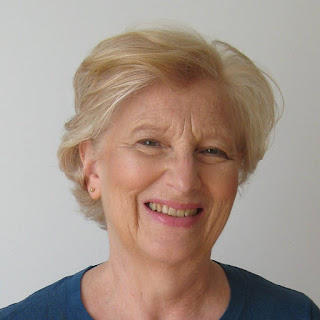 |
| Ellen Cassedy |
Ellen Cassedy and Yermiyahu Ahron Taub are
the translators of Oedipus in Brooklyn and Other Stories by Blume Lempel. They are the winners of a Translation Prize from the
Yiddish Book Center, and they live in the Washington, D.C. area.
Q: How did you end up
translating the stories of Blume Lempel, and what drew you to her writing?
Ellen Cassedy: Years ago,
when my mother died, I decided to study Yiddish as a memorial to her. Early
on, I told my Yiddish teacher I wanted to try my hand at translation. He
went straight to his bookshelf and pulled out a volume by Blume Lempel.
Imagine the down-to-earth insights
of a Grace Paley mixed with the surrealism of a Gabriel Garcia Marquez. That’s
Blume Lempel – an intoxicating blend.
 |
| Yermiyahu Ahron Taub |
Yermiyahu Ahron Taub: Yiddish
was a part of the ultra-Orthodox yeshiva world in which I was raised. I
studied it formally and have been engaged in Yiddish culture since the early
1990s.
Ellen and I met in a Yiddish
reading group. We were absolutely astounded by Blume Lempel: a truly
unique writer with a dazzling lyrical style, an unparalleled compassion for her
characters, a startling diversity of settings, and a daring range of
subjects.
Q: Why did Blume Lempel opt
to write in Yiddish?
A: Blume Lempel (1907-1999)
was born in a small town in Eastern Europe, immigrated to Paris, and then fled
to New York just before World War II. Writing in Yiddish enabled her
to express her connection to those who had perished in the Holocaust – as she
put it, to “speak for those who could no longer speak.”
After World War II, the
Yiddish readership declined around the world, and writing in Yiddish could feel
isolating. But maybe that very isolation freed Lempel to pursue her own
idiosyncratic vision.
Q: What would you say are
some of the themes that run through her stories?
A: Women’s lives and women’s
points of view are central. Lempel draws
on her own life, but also imagines her way into lives far outside her
experience. She takes up subjects that other writers considered taboo –
abortion, rape, the erotic imaginings of a middle-aged woman, and, of course,
in the title story, mother-son incest.
Q: As a writer and
translator, what do you see as the skills required for each, and is there some
overlap?
EC: A great question! My
mother, a writer, always said that “writing begins with taking notice” –
noticing what’s going on around you, what’s going on inside you, and of course
paying close attention to language.
That’s true of translating
too. I love Yiddish, but I find that what’s primary for me as a translator and
as a writer is my love of the nooks and crannies of English.
YAT: As a writer, I inhabit
the worlds of the characters I create. Sometimes that feels like I'm in
control of their creation and destinies, and at other times, I feel more like a
medium, or a vehicle for something that is more primary, more essential. But
either way, I feel like I know their fates.
As a translator, certainty is
more elusive. The goal is to render the words of someone else into a
different language. Sometimes as a translator I wonder, "Is this
really what the author meant? Have we truly captured the nuances, the true
meaning?"
Q: What are you working on
now?
EC: I’m translating the work
of the Yiddish writer Yenta Mash, who grew up in Eastern Europe not far from
Blume Lempel. I’m excited to have won a PEN/Heim translation grant – the first
ever for a Yiddish book – to support the translation. I’m looking for a
publisher now for this remarkable work.
YAT: A new collection of my
poems is currently in the publication process. Six of the poems also have
a Yiddish version, which raises all sorts of translation and design challenges.
Q: Anything else we should know?
A: We hope readers will approach
Oedipus in Brooklyn without preconceived expectations of what fiction should
be. Open yourself up to the twists and turns, the possibilities!
--Interview with Deborah Kalb. For a previous Q&A with Ellen Cassedy, please click here.

No comments:
Post a Comment